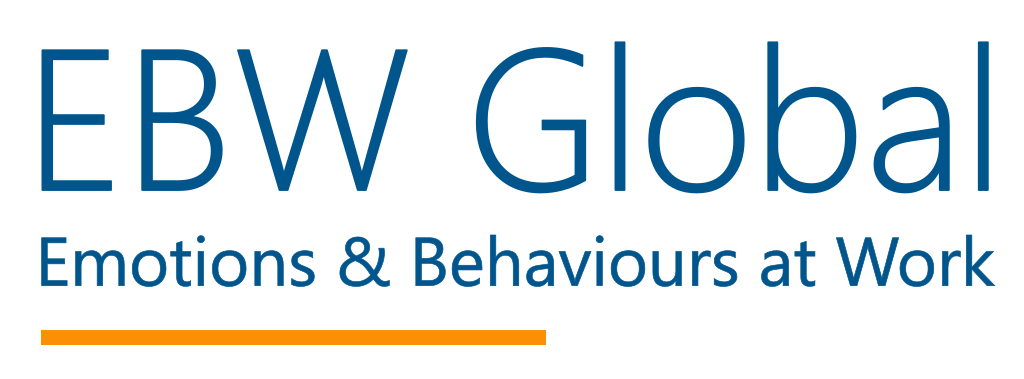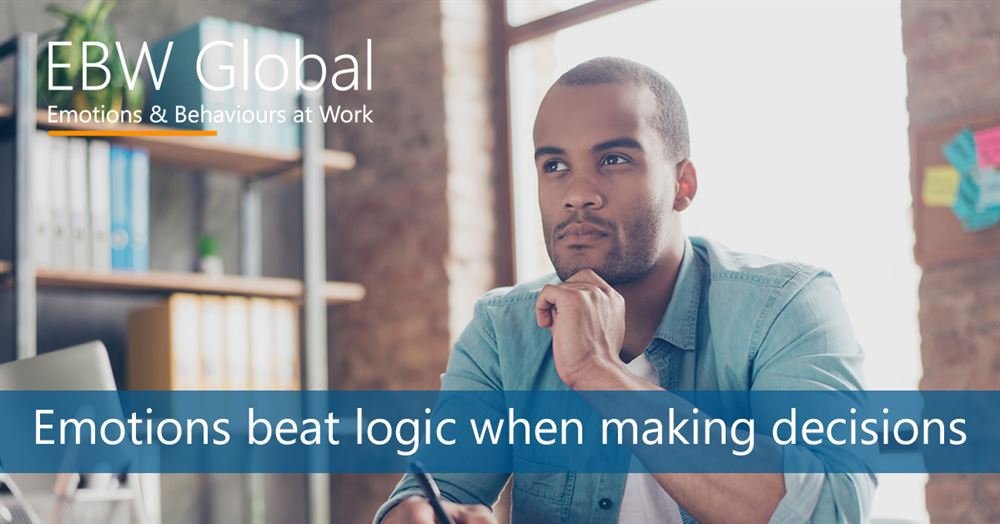Emotions beat logic when making decisions
Decision making is one of the primary areas that Leaders and Teams want to talk to us about.
On the surface, decision-making may seem easy. You weigh your options, measure them against your goals and choose the option that’ll bring you the most benefits. Simple.
Of course, nothing’s that straightforward! People have different motivations, decision making frameworks, and world views, that shape the way they work with others.
So, how do you make better decisions?
How do you empower others to make decisions?
What can you do to help teams to make better decision?
How do you influence a decision-making process?
5 facts about Decision Making
These will help you with your decisions and help you shape others to make better decisions:
Emotions always beat logic
Research has continually found that we use our emotions more than logic to make decisions. The neuroscientist Antonio Damasio studied people who had brain damage in areas that deal with emotions, and found that, although the subjects could talk through the pro and cons of a decision, they could make a choice.
When helping people to make decisions, don’t just get them to think about the facts, ask them to think about how they will feel when they make a particular decision, and whether that emotion is stopping them making the best decision.
More is not always better
If you want to make decisions easier, don’t give people too many options. Sheena Lyenger a professor at Columbia Business School examined what stopped people making decisions.
Lyenger put two displays in a shop that either had 24 different types of jam, or 6 types of jam.
Her results showed that while people stopped more often at the 24 jam display than at the 6 jam display, there were 6 times as many people who bought jam from the 6 jam display.
To make decisions easier for people, the quicker you can reduce their decision to 1 or 3 choices, the easier they will find it to make a decision.
Complex decisions can be made easier
Despite the fact that most of us will not like too many options, life is not always that straightforward. Some decisions require complex choices.
This is when many people suffer from information overload – when they just can’t process all the information to make the best decision.
In her follow up research, Sheena Lyenger found that if complex choices are presented with the easier choice first we find it easier to make more complex decisions.
For example, when selling a car: if you get people to focus on the 4 types of engine size first, rather than the 40 different types of colours the car can be bought in, it will result in more people sticking with the decision making process.
Decision making in the afternoon is hard
Most people get tired as the day goes on - and this can affect the way they make decisions.
We all suffer from a phenomenon call decision fatigue. In other words the more tired you get, the less likely you are to make good or difficult decisions.
A 2011 study at Ben-Gurion University found that parole boards granted parole to about 70% of cases heard in the morning, but less than 10% of cases heard in the afternoon. This pattern held true regardless of the prisoners’ ethnic backgrounds, crimes, or initial sentences. As they got tired the board found it more difficult to consider every aspect of the cases and defaulted to the safe option.
The takeaway is if you or your team have a difficult decision to make consider it in the morning when people are at their freshest.
Smaller teams make better decisions
Research carried out by Princeton University in 2014 found that a smaller a team is the more likely to make better decisions than a larger team. Team decisions are based on two types of information: correlated (things accepted by or known to all members) and uncorrelated (facts perceived only by some group members). Both types of information are important, but the larger the team, the more likely it is that correlated information will outweigh uncorrelated information.
Research suggests the ideal size for a decision-making team (executive board, project teams) is between 7 and 9 people.
EBW Global View
So how can we make better decisions?
Well, we make an estimated 35,000 decisions every day and, according to researchers at Cornell University, 226 of those are on food alone. you would think we would be good at it.
Obviously some decisions have greater impacts than others and they aren’t always easy to make. Decision making is a skill set that needs to be developed like any other.
So how do you do it?
The bottom line is, the factors that influence decision-making go far beyond a simple list.
Successful decisions makers are self-aware and intuitive to others. They can effectively manage their relationships with people and importantly, they have a healthy relationship with themselves.
Think of most of the successful people in business. They haven’t got there on IQ alone.
Great decision-makers have the ability to use their Business Emotional Intelligence to remove the emotions and behaviours that have nothing to do with the decision.
It’s easy to see the flaws of others, but the most successful decision-makers can identify the emotional and behavioural triggers and work past them.
If you want to improve decision making in leaders and teams click the buttons below to find out how Business Emotional Intelligence assessments and toolkits can help.
Discover how Business EQ transforms Leaders and Teams
If you would you like your leaders and teams to improve their decisions and the way they work together, click a button below to see how investing in Business Emotional Intelligence can make a difference or find an EBW Certified Partner to help you.

